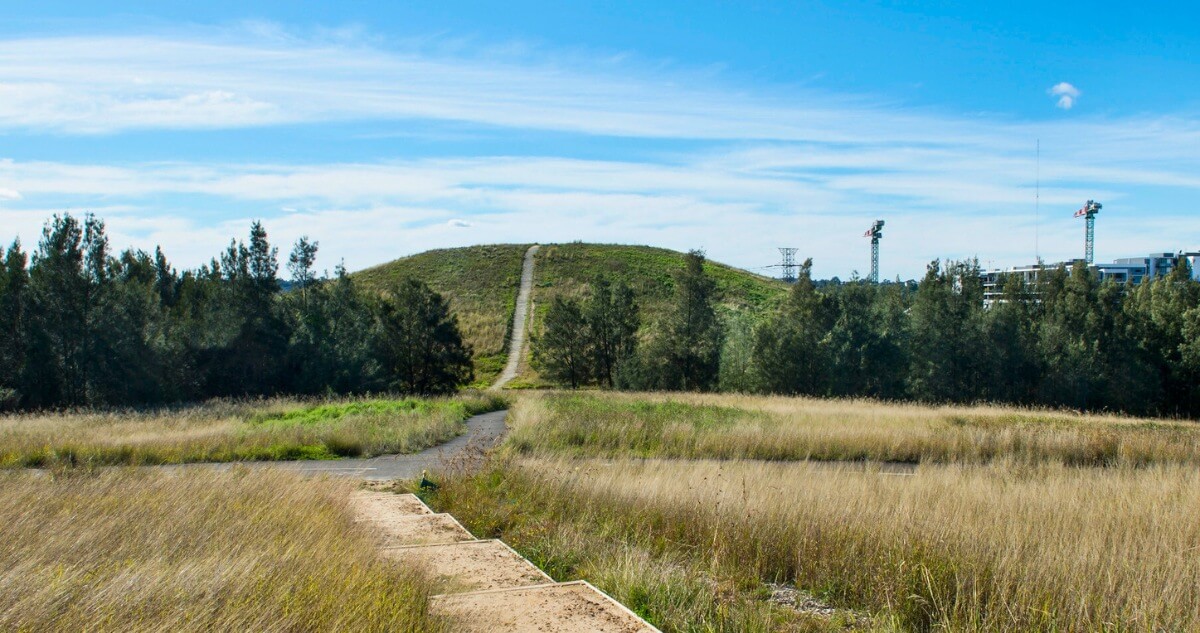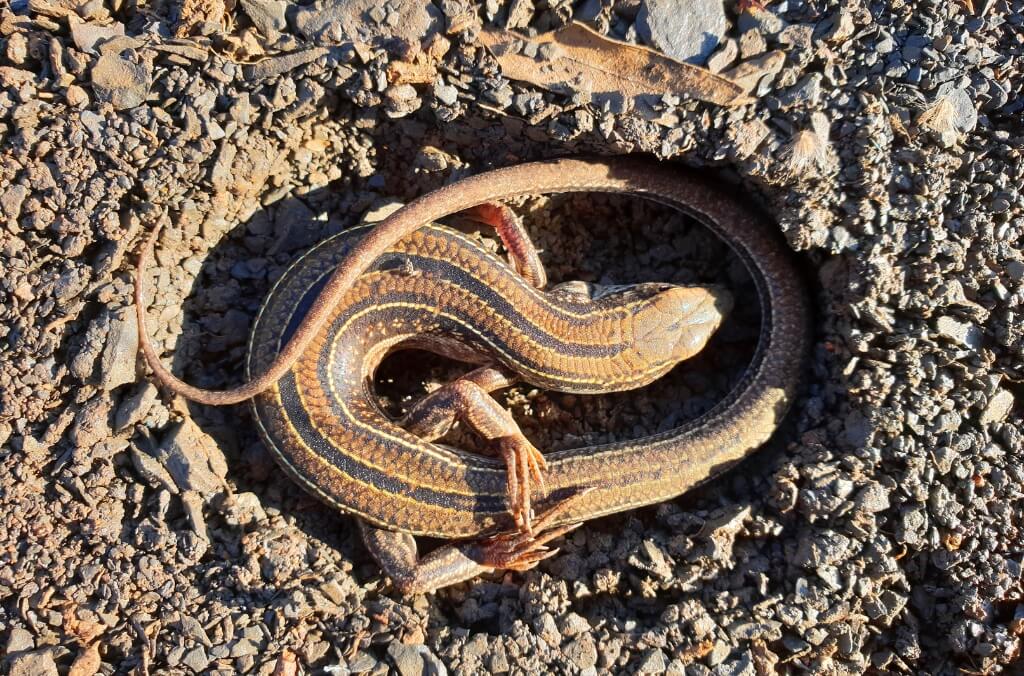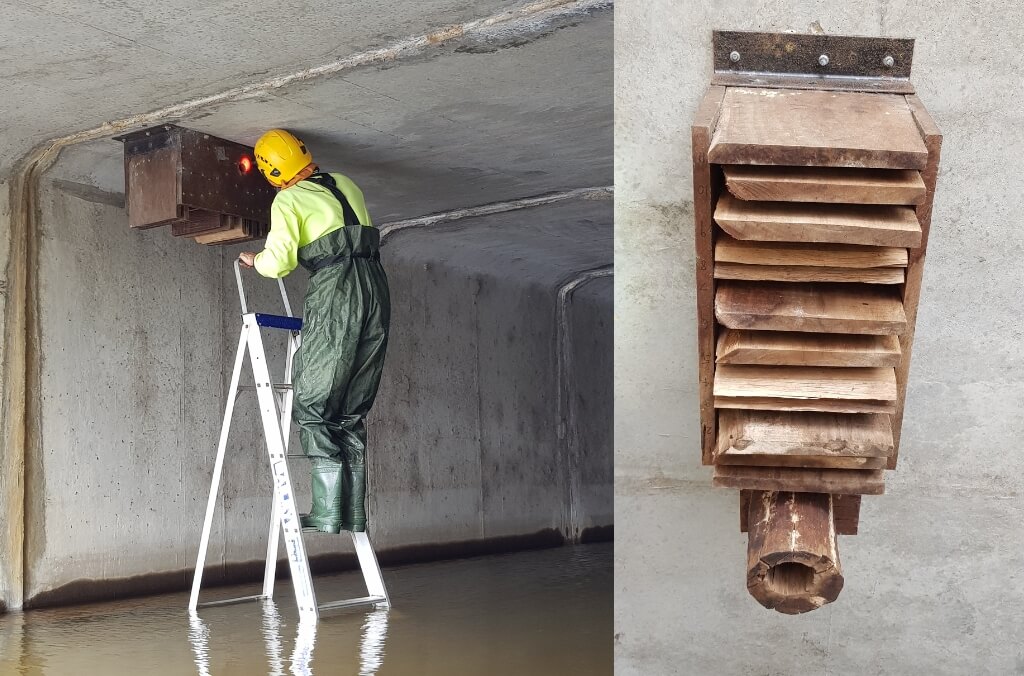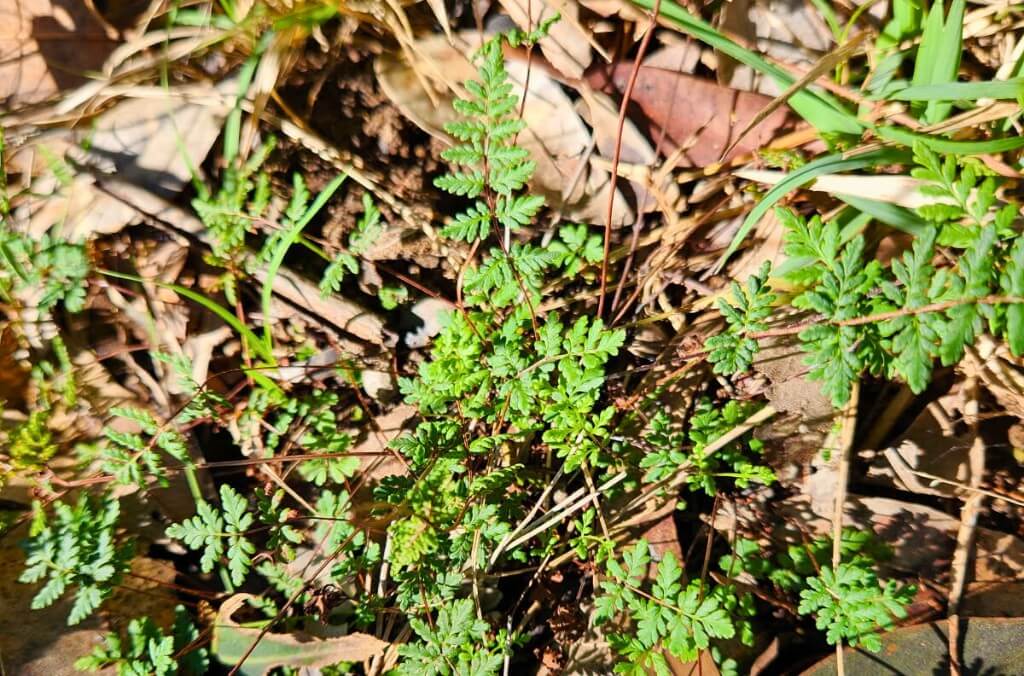Woo-La-Ra Leachate Treatment Facility
We are excited to announce the construction of a new leachate treatment facility at Woo-La-Ra.

Sydney Olympic Park Authority (SOPA) is excited to announce the construction of a new leachate treatment facility at Woo-La-Ra, adding to the Park’s existing network of innovative remediated landfill management solutions.
As the overseer of the day-to-day and long-term management of 10 engineered remediated landfills across 105 hectares, now transformed into open space and parklands, Sydney Olympic Park Authority takes its commitment to sustainability seriously.
Where there is landfill, there is waste; and where there is waste, there is wastewater. This contaminated wastewater, or leachate, needs to be carefully managed to avoid it escaping and polluting the surrounding waterways. Sydney Olympic Park Authority (SOPA) is currently responsible for the treatment and safe disposal of between 30 million and 60 million litres of leachate per annum – that’s enough to fill between 12 and 24 standard Olympic-sized swimming pools!
In the absence of more modern solutions, the Park was previously reliant on the Lidcombe Liquid Waste Treatment Plant (LLWTP) for the disposal of leachate – an expensive process that involved transporting the leachate offsite for treatment. SOPA has worked hard over the 25 years since remediation to develop and implement more sustainable, reliable and cost-effective long-term options for leachate treatment and disposal at the Park, ultimately moving away from a reliance on the Treatment Plant.
Taking an innovative approach to landfill and leachate management has previously seen SOPA establish three biological treatment systems at Wilson Park, Blaxland Common Landfill and the former Golf Driving Range, which utilise man-made wetland systems to process landfill leachate close to the source, naturally and without the use of any chemicals or additives. Collectively, these biological facilities treat and divert more than 90% of all leachate generated by the Sydney Olympic Park landfills.
These wetlands do not cause odour, noise, air, land or water pollution and treat leachate to a very high effluent quality, meeting the NSW Environmental Protection Authority’s environmental criteria for discharge to Parramatta River. Notably, they create new habitat for native flora and fauna, including new growth of indigenous plant species that now inhabit these wetland areas. The treatment process not only results in the safe disposal of leachate, but provides a sustainable source of recycled water for irrigation, helping to save other recycled water and drinking water that would be otherwise used to irrigate the surrounding areas.
The area known as Woo-La-Ra is currently home to the only remaining landfill still completely reliant on the LLWTP for leachate treatment and disposal. Being a scenic and popular recreation area servicing adjacent residential areas, and a key stop along the Riverside Walk, the preservation of open space for recreation at Woo-La-Ra was considered a high priority in the development of the new leachate treatment system at Woo-La-Ra. To maintain SOPA’s commitment to providing plentiful open recreation space for its residents and guests, this facility will not irrigate surrounding areas, but will safely treat and discharge wastewater to the environment through the Blaxland treatment wetlands, or as a back-up, discharge to sewer when capacity in the wetlands is not available.
Following a feasibility assessment and detailed design by consulting engineers henry&hymas on behalf of SOPA, the construction contract for this new facility has been awarded to TCE Contracting, with works expected to commence in October 2024 toward an opening of the facility in 2025. SOPA is thrilled to be implementing this next step in its journey towards sustainable, cost-effective waste management.
You might also be interested in...


Winter brings challenges for both humans and wildlife, prompting various strategies to stay warm and conserve energy.


As part of our mission to protect our native species, over 100 nest and roost boxes have been installed across the Park.


Let’s meet three of Sydney Olympic Park’s remarkable native fern species and discover what makes them truly un-fern-gettable.